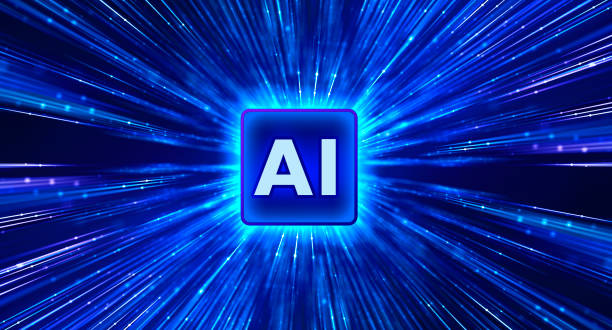Introduction to SEO and its Importance

In the current era, where the internet has become an inseparable part of our daily lives, visibility in the online space is of vital importance.
This is where the concept of #SEO or #Search_Engine_Optimization comes into play.
SEO is the process by which your website is optimized for higher ranking in search engine results such as Google, Bing, and Yahoo.
This process is not merely about visibility; it aims to attract targeted and high-quality traffic to your website.
Imagine you have a product or service, and users are searching for it; if your website doesn’t appear on the first pages of search results, you will likely lose a large portion of potential customers.
For this reason, SEO is considered a pivotal strategy not only for online businesses but for any website looking to increase visits and engagement.
SEO helps websites to have a suitable structure for search engine crawlers, produce relevant and high-quality content, and ultimately provide a better user experience.
This is not just a specialized topic for experts; every website owner should have a basic understanding of it.
The importance of SEO is increasing daily due to the continuous changes in Google’s algorithms and the growing complexities of the online space.
Understanding the basic principles and following new trends in SEO is crucial for maintaining competitiveness.
This introduction attempts to provide an overview and explanation for a deeper understanding of SEO, so that audiences become familiar with its nature and rationale and understand the importance of investing in this field.
Does your current corporate website present a worthy image of your brand and attract new customers?
If not, transform this challenge into an opportunity with Rasaweb’s professional corporate website design services.
✅ Significantly improves your brand’s credibility and image.
✅ Paves the way for attracting new leads and customers for you.
⚡ For a free and specialized consultation, contact Rasaweb now!
Types of SEO and Key Differences

SEO is a comprehensive concept that includes various aspects for improving website ranking.
Generally, SEO can be divided into three main categories: On-Page SEO, Off-Page SEO, and Technical SEO.
Each of these types focuses on a specific part of the website and together lead to a complete optimization strategy.
On-Page SEO refers to all activities you perform within your website to improve its ranking in search engines.
This includes optimizing content, keywords, titles, meta descriptions, and URL structure.
The main goal of On-Page SEO is to create relevant and useful content for users, as well as to make it easier for search engine crawlers to understand your site’s content.
In contrast, Off-Page SEO refers to activities performed outside your website to increase its authority and credibility.
The most important element of Off-Page SEO is Link Building; that is, acquiring links from other websites to your site.
These links are considered “votes of confidence” from other websites and indicate to search engines that your content is valuable and authoritative.
Technical SEO also focuses on optimizing the technical infrastructure of the website so that search engine crawlers can easily find, index, and rank your site.
This includes site loading speed, mobile compatibility, site structure, and the use of sitemaps.
Understanding the differences between these three types of SEO is crucial for developing a comprehensive and effective SEO strategy, as each plays a complementary role to the others.
On-Page SEO and its Elements

On-Page SEO is the core of any successful SEO strategy.
This type of SEO includes all actions you can directly perform on your website pages to improve their ranking in search results.
The main focus is on content and its structure to be optimized for both users and search engines.
One of the most important elements is the proper selection and use of keywords.
These keywords should be chosen with careful research to exactly meet the search needs of your target audience.
Once identified, they should be naturally incorporated into the page title, meta description, headings (H1-H6), and main text.
The table below lists some of the most important On-Page SEO elements and their significance:
| On-Page SEO Element | Description | Importance |
|---|---|---|
| Keywords | Identifying and using user search queries | Relevance to user needs and ranking |
| Meta Tags (Title & Description) | Page Titles (Title Tag) and Descriptions (Meta Description) | Attracting clicks from search results and search engine understanding |
| URL Structure | Website page addresses (should be short, descriptive, and include keywords) | Readability, accessibility, and signal for search engine |
| Headings (H1-H6) | Structuring content with subheadings | Improving readability, content hierarchy, and SEO |
| Image Optimization | Reducing size, proper naming, and using Alt Text | Site speed, accessibility, and improved ranking in image search |
In addition to these, internal links that connect different pages of your site play an important role in distributing page authority and helping search engine crawlers discover new pages.
Providing descriptive and comprehensive content, as well as ensuring its quality and uniqueness, are fundamental pillars of On-Page SEO.
This educational approach helps you to have complete control over the optimization aspects within your site.
Off-Page SEO and its Strategies

Off-Page SEO refers to a set of activities performed outside your website to improve its credibility, authority, and ultimately its ranking in search engines.
While On-Page SEO focuses on the content and structure of the website, Off-Page SEO is more about your website’s reputation and credibility in the eyes of search engines.
The most important and influential component of Off-Page SEO is Link Building.
Receiving links from other websites (especially reputable and relevant ones) is considered a vote of confidence from those sites for your content.
The greater the number and quality of these links, the more authoritative and trustworthy search engines will consider your site.
Link building strategies include creating high-quality, valuable content that others naturally link to (entertaining or analytical content), building relationships with bloggers and influencers, submitting guest articles to other sites, participating in online forums and social networks.
Not only the number of links matters; quality, relevance, and diversity of linking domains are also very important.
Low-quality or spam links can cause serious damage to your SEO ranking.
In addition to link building, activity on social networks and increasing social signals (shares, likes, comments) can also indirectly affect Off-Page SEO, although they are not directly considered ranking factors.
These activities can lead to greater visibility of your content and consequently increase the likelihood of natural linking to it.
A strong Off-Page SEO strategy helps strengthen the overall credibility of your website and transforms it into an expert resource in its field of activity.
Does your current corporate website present a worthy image of your brand and attract new customers?
If not, transform this challenge into an opportunity with Rasaweb’s professional corporate website design services.
✅ Significantly improves your brand’s credibility and image.
✅ Paves the way for attracting new leads and customers for you.
⚡ For a free and specialized consultation, contact Rasaweb now!
Technical SEO: Its Role in Visibility

Technical SEO is the backbone of any website’s visibility in search engines.
This part of SEO deals with the technical aspects of your website that affect its crawlability and indexability by search engines.
Without a strong technical foundation, even the best internally SEO-optimized content and external link building strategies cannot reach their full potential.
One of the most important factors in Technical SEO is site loading speed.
Users and search engines both prefer fast websites.
Slow speed can lead to a high bounce rate and poor user experience, both of which negatively impact SEO ranking.
In addition to speed, Mobile-Friendliness is also crucial.
Given the significant increase in mobile device usage for internet access, Google uses a “Mobile-First Indexing” approach, meaning it prioritizes the mobile version of your site for indexing and ranking.
Site structure, including Information Architecture and proper use of robots.txt files and XML Sitemaps, are also key aspects of Technical SEO.
These files and maps help search engines better understand your site’s structure and discover and index all its important pages.
Fixing crawl errors, using HTTPS for security, and implementing Schema Markup are other specialized actions in this area.
Strong Technical SEO ensures that search engines can access and understand your content without any issues, which is a fundamental prerequisite for any other type of SEO.
Content is the King of SEO

In the world of SEO, there is always a phrase that acts like a golden rule: “Content is King”.
Without high-quality, relevant, and valuable content, no SEO strategy, whether On-Page or Off-Page, can fully succeed.
Content is the element that attracts users to your website and keeps them engaged.
Search engines also aim to provide the best and most relevant answers to their users’ queries, and this is where the role of your content becomes prominent.
Various types of content can be beneficial for SEO, including in-depth educational articles, news blog posts, descriptive product pages, informational infographics, entertaining videos, and analytical reports.
Good content should have several characteristics: Firstly, it must be unique and original.
Copying content from other sites can severely harm your SEO ranking.
Secondly, it must be relevant to your target keywords and naturally incorporate them.
Thirdly, it must be valuable and useful, answering users’ questions or solving their problems.
Question-provoking content that encourages discussion and interaction can also be very effective.
Content structure is also of high importance; using clear titles and subtitles, short paragraphs, lists, and images improves content readability and enhances user experience.
Consistent content production and updating old content also signal to search engines that your website is active and relevant.
Investing in high-quality content production is a long-term investment in your website’s SEO success and organic traffic.
SEO Tools and Data Analysis

To succeed in SEO, knowing the principles alone is not enough; it requires appropriate tools for implementation, monitoring, and performance analysis.
SEO tools have a wide range and can assist you at every stage of the search engine optimization process.
From keyword research to competitor analysis, backlink checking, and rank monitoring.
These tools provide you with crucial data that facilitates strategic decision-making.
Some tools are free and very useful for starting, while others are paid and more specialized, offering broader capabilities.
Using these analytical tools is essential for understanding user behavior, identifying opportunities, and resolving technical issues.
Below are some of the most commonly used SEO tools and their applications:
| Tool Name | Primary Use | Tool Type |
|---|---|---|
| Google Search Console | Monitoring site performance in search results, identifying crawl errors, checking indexing | Analytical/Webmaster (Free) |
| Google Analytics | Analyzing user behavior on site, traffic sources, conversion rate, and other metrics | Analytical/Statistics (Free) |
| Ahrefs | Backlink analysis, keyword research, competitor analysis, site health check | Specialized/Comprehensive (Paid) |
| Semrush | Keyword research, competitor analysis, On-Page SEO, PPC, content marketing | Specialized/Comprehensive (Paid) |
| Yoast SEO (WordPress Plugin) | Optimizing On-Page SEO for WordPress sites (title, description, keywords) | Educational/Plugin (Free with Premium version) |
| Moz Pro | SEO analysis, domain authority, keyword research, link analysis | Specialized/Comprehensive (Paid) |
These tools help you continuously evaluate and improve your SEO strategy.
Proper use of these tools can help provide accurate news reports and data-driven decisions, which is vital for any SEO specialist.
The Role of User Experience (UX) in SEO
![]()
In recent years, the connection between User Experience (UX) and SEO has been increasingly strengthened.
In the past, SEO focused more on keywords and backlinks, but today search engines increasingly value the quality of the user experience a website provides.
Google and other search engines aim to provide the best results to users, and if a website has a poor user experience, even if its content is relevant, it is unlikely to rank higher.
UX factors that influence SEO include page loading speed, mobile compatibility, attractive visual design, easy navigation, and readable and useful content.
A website that loads quickly, is easily accessible on mobile, and where users can easily navigate and find the information they need, will naturally have a lower bounce rate and users will spend more time on the site.
These signals indicate to search engines that your website is valuable to users, which in turn can help improve SEO rankings.
Optimizing Google’s Core Web Vitals, which include metrics like Largest Contentful Paint (LCP) for loading speed, First Input Delay (FID) for interactivity, and Cumulative Layout Shift (CLS) for visual stability, is a prime example of UX’s importance in SEO.
An excellent user experience not only helps improve SEO but also leads to increased conversion rates and customer loyalty.
Therefore, every successful SEO strategy must place improving user experience at its core.
Are you losing business opportunities due to an outdated website? With Rasaweb, permanently solve the challenge of not attracting potential customers through your website!
✅ Attract more high-quality leads
✅ Increase brand credibility in the eyes of customers
⚡ Receive free corporate website design consultation
The Future of SEO and Emerging Trends

The world of SEO never stands still and is constantly evolving.
With technological advancements and changing user behavior, search engine algorithms are continuously updated.
Understanding emerging trends is crucial for any SEO specialist looking to remain competitive.
One of the most important future trends is the increasing importance of voice search and artificial intelligence in the search process.
With the widespread adoption of voice assistants like Siri, Alexa, and Google Assistant, users are increasingly using voice commands to ask questions.
This necessitates a shift in keyword strategy towards longer, more conversational, and question-based phrases.
Visual and video content will also play a more prominent role in the future of SEO.
Search engines are improving their ability to understand and rank visual content, so optimizing images and videos for search (such as adding captions and detailed descriptions) will become increasingly important.
Also, Local SEO will become more critical for businesses with a physical presence, especially with Google Maps and “near me” search results.
Focusing on E-E-A-T (Experience, Expertise, Authoritativeness, Trustworthiness), emphasized in Google’s content quality guidelines, indicates the importance of experience, expertise, authority, and trust in content creation.
This requires producing specialized and authoritative content by experienced writers.
Finally, with the emergence of Web 3.0 and the Metaverse, SEO may also evolve into new forms requiring novel approaches and creative thinking from SEO professionals.
Conclusion and SEO Learning Path
![]()
In this article, we comprehensively examined SEO from various aspects.
From a general introduction to SEO as the beating heart of digital marketing to its types including On-Page, Off-Page, and Technical SEO, the irreplaceable role of content in SEO success, the importance of analytical tools, and the increasing impact of user experience, and finally, the future trends in this field.
SEO is a complex but entirely logical and learnable process that requires patience, consistency, and continuous knowledge updates.
As we saw, SEO is not limited to technical topics; producing high-quality and valuable content, building relationships with other websites, and providing an unparalleled user experience are all fundamental pillars of it.
For individuals interested in deeper learning in this field, the SEO learning path provides practical guidance.
Numerous educational resources are available: from online courses and specialized blogs to books and the community of SEO professionals.
Starting with basic SEO concepts, then delving into the details of On-Page and Off-Page SEO, understanding specialized Technical SEO topics, and learning to work with various SEO tools are essential steps.
Following news and updates on Google algorithms, participating in webinars and conferences, and gaining practical experience with real projects are other ways to enhance knowledge and skills in this area.
SEO is a long-term investment whose results may not be immediately visible, but it consistently brings organic and high-quality traffic to your website and ultimately significantly contributes to the growth and success of your business in the online world.
Frequently Asked Questions
| Question | Answer |
|---|---|
| What is SEO? | SEO, or Search Engine Optimization, is the process of increasing the quality and quantity of website traffic by improving the site’s ranking in natural (organic) search engine results like Google. |
| What are the main types of SEO? | SEO is divided into three main categories: On-Page SEO, Off-Page SEO, and Technical SEO. |
| What does On-Page SEO include? | On-Page SEO involves optimizing elements within the website, such as keywords, page titles (Title Tag), meta descriptions (Meta Description), content, URL structure, images, and internal links. |
| What is Off-Page SEO? | Off-Page SEO refers to activities outside your website that help improve its ranking, such as backlink building, social media marketing, and brand mentions. |
| What is Technical SEO? | Technical SEO focuses on optimizing the technical aspects of a website to help search engines crawl and index it more effectively. This includes site speed, mobile-friendliness, site structure, sitemaps, and Robots.txt files. |
| What role do Keywords play in SEO? | Keywords are phrases that users enter into search engines. Proper and targeted use of relevant keywords in content and site elements helps search engines understand the topic of your page and display it for relevant searches. |
| What is a Backlink and why is it important? | A backlink, or inbound link, is a link from one website to another. Backlinks act as a “vote of confidence” from other sites for search engines and play a crucial role in a site’s authority and ranking, especially if they come from reputable sites. |
| What is the impact of quality content on SEO? | High-quality, relevant, comprehensive, and unique content not only attracts and retains users but also signals to search engines that your page is valuable. This helps improve ranking, reduce bounce rate, and increase user time on site. |
| Why is site loading speed important for SEO? | Site loading speed is an important ranking factor for Google. Faster sites offer a better user experience, have lower bounce rates, and are preferred by search engines. |
| Is SEO a one-time process? | No, SEO is a continuous and long-term process. Search engine algorithms are constantly changing, competition is increasing, and site content also needs updates. Therefore, SEO requires continuous monitoring, analysis, and optimization. |
And other advertising services from Rasaweb Advertising Agency
Smart Customer Journey Map: Revolutionize campaign management with intelligent data analysis.
Smart UI/UX: Designed for businesses seeking to increase click-through rates through marketing automation.
Smart Custom Software: A blend of creativity and technology for analyzing customer behavior using real data.
Smart UI/UX: Professional optimization for campaign management using real data.
Smart Conversion Rate Optimization: An innovative platform for improving campaign management with Google Ads management.
And over a hundred other services in the field of internet advertising, advertising consultation, and organizational solutions
Internet Advertising | Advertising Strategy | Advertorial
References
Basic SEO Principles: A Comprehensive Guide for BeginnersSEO Content Writing: Step-by-Step to Top RankingComplete Technical SEO Guide for Site Performance ImprovementLatest Digital Marketing Trends in 2023
? Are you ready to grow your business in the digital world? Rasaweb Afarin Digital Marketing Agency paves your path to success by offering comprehensive and innovative solutions, including website design with a modern user interface and targeted marketing strategies.
📍 Tehran, Mirdamad Street, next to Bank Markazi, Kazeroon Jonoubi Alley, Ramin Alley No. 6




